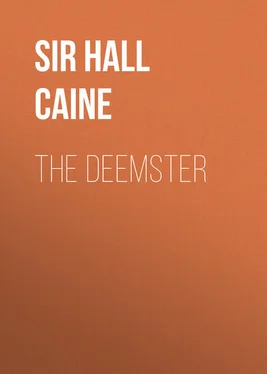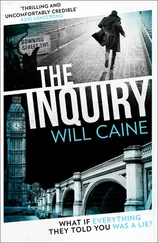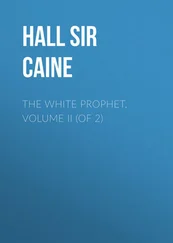Hall Caine - The Deemster
Здесь есть возможность читать онлайн «Hall Caine - The Deemster» — ознакомительный отрывок электронной книги совершенно бесплатно, а после прочтения отрывка купить полную версию. В некоторых случаях можно слушать аудио, скачать через торрент в формате fb2 и присутствует краткое содержание. ISBN: , Жанр: foreign_antique, foreign_prose, на английском языке. Описание произведения, (предисловие) а так же отзывы посетителей доступны на портале библиотеки ЛибКат.
- Название:The Deemster
- Автор:
- Жанр:
- Год:неизвестен
- ISBN:http://www.gutenberg.org/ebooks/35781
- Рейтинг книги:5 / 5. Голосов: 1
-
Избранное:Добавить в избранное
- Отзывы:
-
Ваша оценка:
- 100
- 1
- 2
- 3
- 4
- 5
The Deemster: краткое содержание, описание и аннотация
Предлагаем к чтению аннотацию, описание, краткое содержание или предисловие (зависит от того, что написал сам автор книги «The Deemster»). Если вы не нашли необходимую информацию о книге — напишите в комментариях, мы постараемся отыскать её.
The Deemster — читать онлайн ознакомительный отрывок
Ниже представлен текст книги, разбитый по страницам. Система сохранения места последней прочитанной страницы, позволяет с удобством читать онлайн бесплатно книгу «The Deemster», без необходимости каждый раз заново искать на чём Вы остановились. Поставьте закладку, и сможете в любой момент перейти на страницу, на которой закончили чтение.
Интервал:
Закладка:
Outside, on the gravel path, the old woman stood with the light of the lamp that burned in the hall on her wizened face. It was Mrs. Kerruish, the mother of Mally.
"It's fine times you're having of it, Master Mylrea," she said, "and you, too, your reverence; but what about me and my poor girl?"
"It was yourself that did it, woman," said Thorkell; and he tried to laugh, but under the stars his laugh fell short.
"Me, you say? Me, was it for all? May the good God judge between us, Master Mylrea. D'ye know what it is that happened? My poor girl's gone."
"Gone!"
"Eh, gone – gone off – gone to hide her shameful face; God help her."
"Better luck," said Thorkell, and a short gurgle rattled in his dry throat.
"Luck, you call it? Luck! Take care, Ballamona."
The Archdeacon interposed. "Come, no threats, my good woman," he said, and waved his hand in protestation. "The Church has done you justice in this matter."
"Threats, your reverence? Justice? Is it justice to punish the woman and let the man go free? What! the woman to stand penance six Sabbaths by the church-door of six parishes, and the man to pay his dirty money, six pounds to you and three to me, and then no mortal to name his name!"
The old woman rummaged in the pocket at her side and pulled out a few coins. "Here, take them back; I'm no Judas to buy my own girl. Here, I say, take them!"
Thorkell had thrust his hands in his pockets, and was making a great show of laughing boisterously.
The old woman stood silent for a moment, and her pale face turned livid. Then by a sudden impulse she lifted her eyes and her two trembling arms. "God in Heaven," she said, in a hoarse whisper, "let Thy wrath rest on this man's head; make this house that he has built for himself and for his children a curse to him and them and theirs; bring it to pass that no birth come to it but death come with it, and so on and on until Thou hast done justice between him and me."
Thorkell's laughter stopped suddenly. As the woman spoke his face quivered, and his knees shook perceptibly under him. Then he took her by the arms and clutched her convulsively. "Woman, woman, what are you saying?" he cried, in his shrill treble. She disengaged herself and went away into the night.
For a moment Thorkell tramped the hall with nervous footsteps. The Archdeacon stood speechless. Then the sound of laughter and of song came from the room they had left, and Thorkell flung in on the merry-makers.
"Go home, go home, every man of you! Away with you!" he shouted, hysterically, and then dropped like a log into a chair.
One by one, with many wise shakes of many sapient heads, the tipsy revelers broke up and went off, leaving the master of Ballamona alone in that chamber, dense with dead smoke, and noisome with the fumes of liquor.
CHAPTER IV
THE DEEMSTER OF MAN
Twenty times that night Thorkell devised expedients to break the web of fate. At first his thoughts were of revengeful defiance. By fair means or foul the woman Kerruish should suffer. She should be turned out of house and home. She should tramp the roads as a mendicant. He would put his foot on her neck. Then they would see what her uncanny threats had come to.
He tried this unction for his affrighted spirit, and put it aside as useless. No, no; he would conciliate the woman. He would settle an annuity of five pounds a year upon her; he would give her the snug gate cottage of old Ballamona to live in; his wife should send her warm blankets in winter, and sometimes a pound of tea, such as old folks love. Then must her imprecation fall impotent, and his own fate be undisturbed.
Thorkell's bedroom in his new house on Slieu Dhoo looked over the Curraghs to the sea. As the day dawned he opened the window, and thrust out his head to drink of the cool morning air. The sun was rising over the land behind, a strong breeze was sweeping over the marshes from the shore, and the white curves of the breakers to the west reflected here and there the glow of the eastern sky. With the salt breath of the sea in his nostrils, it seemed to Thorkell a pitiful thing that a man should be a slave to a mere idea; a thing for shame and humiliation that the sneezing of an old woman should disturb the peace of a strong man. Superstition was the bugbear of the Manxman, but it would die of shame at its sheer absurdity, only that it was pampered by the law. Toleration for superstition! Every man who betrayed faith in omens or portents, or charms or spells, or the power of the evil eye, should be instantly clapped in the Castle. It was but right that a rabid dog should be muzzled.
Thorkell shut the window, closed the shutters, threw off his clothes, and went back to bed. In the silence and the darkness, his thoughts took yet another turn. What madness it was, what pertness and unbelief, to reject that faith in which the best and wisest of all ages had lived and died! Had not omens and portents, and charms and spells, and the evil eye been believed in in all ages? What midget of modern days should now arise with a superior smile and say, "Behold, this is folly: Saul of Israel and Saul of Tarsus, and Samuel and Solomon, rose up and lay down in folly."
Thorkell leaped out of bed, sweating from every pore. The old woman Kerruish should be pensioned; she should live in the cozy cottage at the gates of Ballamona; she should have blankets and tea and many a snug comfort; her daughter should be brought back and married – yes, married – to some honest fellow.
The lark was loud in the sky, the rooks were stirring in the lofty ash, the swallows pecking at the lattice, when sleep came at length to Thorkell's bloodshot eyes, and he stretched himself in a short and fitful slumber. He awoke with a start. The lusty rap of Hommy-beg was at the door of his room. There was no itinerant postman, and it was one of Hommy-beg's daily duties to go to the post-office. He had been there this morning, and was now returned with a letter for his master.
Thorkell took the letter with nervous fingers. He had recognized the seal – it was the seal of the insular Government. The letter came from Castle Rushen. He broke the seal and read:
"Castle Rushen, June 3d.
"Sir – I am instructed by his Excellency to beg you to come to Castletown without delay, and to report your arrival at the Castle to Madam Churchill, who will see you on behalf of the Duchess.
"I have the honor to be, etc."
The letter was signed by the Secretary to the Governor.
What did it mean? Thorkell could make nothing of it but that in some way it boded ill. In a bewildered state of semi-consciousness he ordered that a horse should be got ready and brought round to the front. Half an hour later he had risen from an untouched breakfast and was seated in the saddle.
He rode past Tynwald Hill and through Foxdale to the south. Twenty times he drew up and half-reined his horse in another direction. But he went on again. He could turn about at any time. He never turned about. At two o'clock that day he stood before the low gate of the Castle and pulled at the great clanging bell.
He seemed to be expected, and was immediately led to a chamber on the north of the courtyard. The room was small and low; it was dimly lighted by two lancet windows set deep into walls that seemed to be three yards thick. The floor was covered with a rush matting; a harp stood near the fireplace. A lady rose as Thorkell entered. She was elderly, but her dress was youthful. Her waist was short; her embroidered skirt was very long; she wore spangled shoes, and her hair was done into a knot on the top of her head.
Thorkell stood before her with the mien of a culprit. She smiled and motioned him to a seat, and sat herself.
"You have heard of the death of one of our two Deemsters?" she asked.
Читать дальшеИнтервал:
Закладка:
Похожие книги на «The Deemster»
Представляем Вашему вниманию похожие книги на «The Deemster» списком для выбора. Мы отобрали схожую по названию и смыслу литературу в надежде предоставить читателям больше вариантов отыскать новые, интересные, ещё непрочитанные произведения.
Обсуждение, отзывы о книге «The Deemster» и просто собственные мнения читателей. Оставьте ваши комментарии, напишите, что Вы думаете о произведении, его смысле или главных героях. Укажите что конкретно понравилось, а что нет, и почему Вы так считаете.












